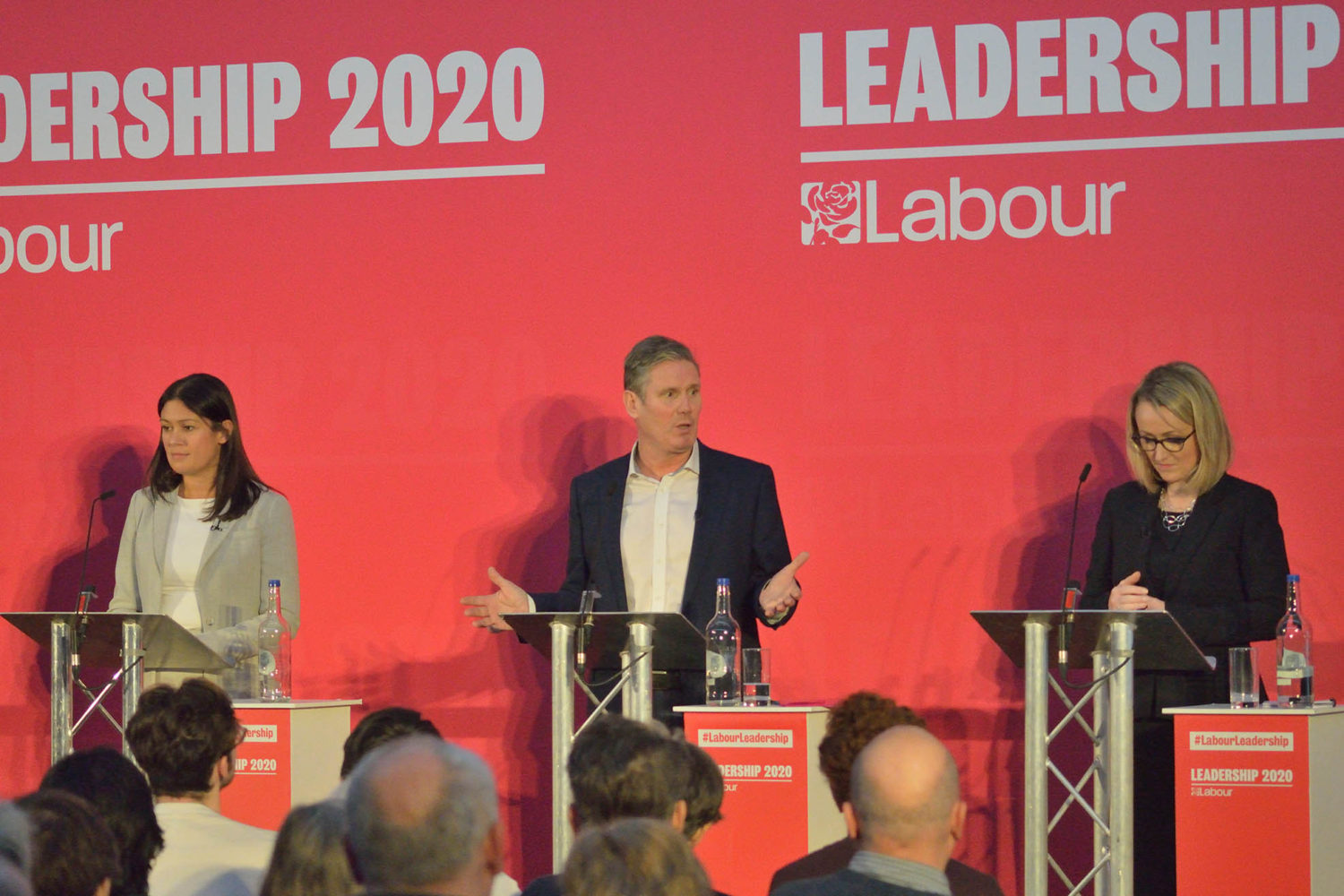Uniting our movement
Our shared values should bring us together to tackle injustice, argues Keir Starmer MP.
It was 120 years ago this month that 129 representatives of the British working-class movement, socialist societies and disparate left political groups met at Memorial Hall in London to create a united and common force.
They came together in support of a motion proposed by Keir Hardie to create a distinct group in parliament dedicated to “promoting legislation in the direct interests of labour.” It was the birth of the Labour party. The Fabians were there, standing shoulder to shoulder with trade unionists and fellow socialists in common determination to break the grip of Tory and Liberal rule and put an end to the great injustices faced daily by Britain’s working class.
Since then, the Labour party has become the greatest force for good our country has ever known. Our movement founded the National Health Service, introduced the Equal Pay Act, transformed education, created Sure Start, decriminalised homosexuality, established the national minimum wage and helped to deliver peace in Northern Ireland. We fought for workers’ rights, environmental protection and equality.
It is a proud history, but the sad truth is that it should be prouder. We have only been in government for 33 of those 120 years. The vast majority of our time has been in opposition.
In government, we can change lives. In opposition, we can’t. That is why the election result was so devastating. It was devastating for our movement, our party and for the millions of people who so desperately needed change in December – and still do.
We are now facing the most right-wing government in recent history. A prime minister and a cabinet utterly lacking in principles or conviction.
Within weeks of the election, Boris Johnson abandoned the UK’s commitment to family reunification for child refugees after Brexit. Dominic Cummings declared war on the BBC. New immigration rules have rebooted concerns about the ‘hostile environment’. And the government is ploughing ahead with a post-Brexit trade policy that will rupture our economic relationship with Europe and risks decimating manufacturing and undermining essential rights and protections.
Meanwhile, austerity continues to chip away at the foundations of our society: schools and hospitals unable to cope, record numbers of people sleeping rough on our streets and child poverty on the rise. That’s the cost of losing four elections in a row.
The question for our party is how we get from where we are now to where we need to be in four years’ time. For me, that starts by uniting our movement.
Labour has always been a place where different traditions come together: trade unionists, social democrats and radical democratic socialists. And over the decades Labour has expanded its coalition and become a home for feminists, environmentalists, campaigners for a fairer society for disabled people, LGBT+ movements, anti-racist campaigners, internationalists and many more.
Our plurality is a strength—broadening our potential electoral appeal as well as enriching our understanding of the issues facing Britain. But too often in recent years we have focused on our differences, rather than our shared values and common beliefs. If we are to win the next election, we have to put rancour, division and factionalism behind us. We must embed into our culture and actions that all members are equal and should be treated with respect.
Uniting our movement does not mean silencing debate. Those discussions are what keep our movement alive and relevant. It is about changing the culture and the manner with which those discussions take place. The future of our party must be built on a new, more inclusive, more democratic culture of dignity and respect. I have argued in this campaign that we need our party to function like friends round a table, where each of us can be confident that our ideas are valued while we work together to find a way forward that is founded within our principles.
We are the party and the movement that oppose austerity and cuts to public services. We are a movement that believes in common ownership, with public services in public hands. We stand up for human rights, peace and justice around the world. And we will stand in solidarity with the most vulnerable in our society.
My socialism is rooted in a burning desire to tackle inequality and injustice, to stand up for the powerless against the powerful. I see a society riddled with inequality and injustice and my first instinct is to try and put it right. I know that same drive is shared by the hundreds of thousands within our movement.
We see that in a typical classroom of 30, nine children are living in poverty. We are determined to put that right. We see that the climate crisis is already with us in extreme weather events and the toxic air in our children’s lungs. We are determined to put that right. We see that life expectancy is stalling and health inequalities are widening. We are determined to put that right too.
That is why there can be no going back from our core principles and it is why during the leadership contest I have made the moral case for socialism; a socialism which is relevant to people’s lives and looks ahead at tackling some of the defining issues of the coming decades: economic justice, social justice and climate justice.
On economic justice, the free market has failed. The myth of trickle-down economics has been busted after years of growing inequality, insecure work and stagnant wages. We need a new economic model which tackles inequality, gives people a real voice in their place of work, and spreads investment and wealth across every nation and region.
We also need a tax system that can allow us to properly invest in our public services. Labour didn’t lose the last election because we promised to raise tax on the highest 5 per cent of earners or to make corporations pay their fair share. Those are the right principles. We should be asking those with the broadest shoulders to pay more in tax and we should be arguing for a clamp down on tax avoidance.
Economic justice cannot be delivered without a fundamental redistribution of power. That is why I have argued for a radical devolution of power under a federal system. We need to end the monopoly of power in Westminster and spread it across every town, city, region and nation of the United Kingdom. We need to give communities power to invest and build an economy that works for them.
However, the idea that economic growth alone will solve society’s ills and make us all prosper is wrong and outdated. We need to create a healthier society where everyone can thrive, with government, employers and citizens all playing our part together.
The UK is the sixth largest economy in the world. And yet, millions of people are suffering because of the deep inequalities that have become so ingrained in our society. The recent Marmot report into the country’s health has exposed the human impact of a decade of austerity. For the first time in a century, life expectancy has stalled, with communities in the north east of England seeing it fall.
We can only begin to improve the nation’s wellbeing if we treat wellbeing equally to economic growth. GDP alone does not measure the health of our children, the quality of the air we breathe or people’s quality of life. Prosperity and a sound economy go hand in hand.
We can no longer accept that a child’s life chances are determined at the moment of birth. We must seek to prevent problems from happening in people’s lives, rather than seeking to manage them once they have happened. We need a new approach to public policy that helps and supports people as early as possible.
Finally, a new socioeconomic model must go hand-in-hand with how we approach the climate crisis. There is no issue more important to our future than the climate emergency; it should be hardwired into everything we do. The argument that something can be good for the economy, but bad for the environment is over. If it is bad for the environment, then it is bad for the economy. It is as simple as that.
The case we made at the last election for a green new deal was the right one. But we lost that election and we must now face up to the fact that we will not be able to tackle this issue at a national level for four more years. We can take action at a local level. There are councils across the country which have the chance to demonstrate how Labour in power can protect the environment. We must learn from these examples and use them to inform our approach going forward.
We must stand up for internationalism too. The Paris Agreement took a step in the right direction, but it is not strong enough. The government should be seeking to forge an international alliance to end the climate crisis, give justice and sanctuary to climate refugees and support developing economies to build their own zero carbon economies.
Our vision for the country must be more than a shopping list of policies, though. We have lost four elections in a row. The public has lost trust in Labour as a force for good and a force for change. We have to turn that around. We have to win back votes, but also people’s trust.
I believe another future is possible for our country and our movement, but we have to fight for it. We have to harness the energy from our alliance of different traditions behind the single goal of winning the next election. We must raise our sights with a vision that matches the ambition of the British people. United, with the whole movement pulling together, we can, and we will, win.
Photo credit: Rwendland/Wikimedia

